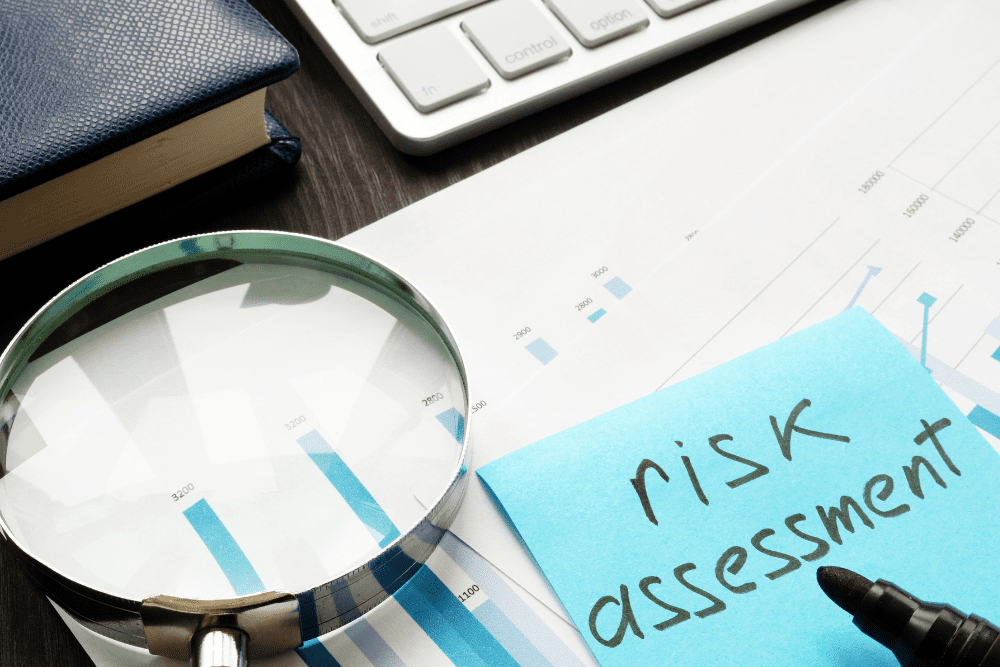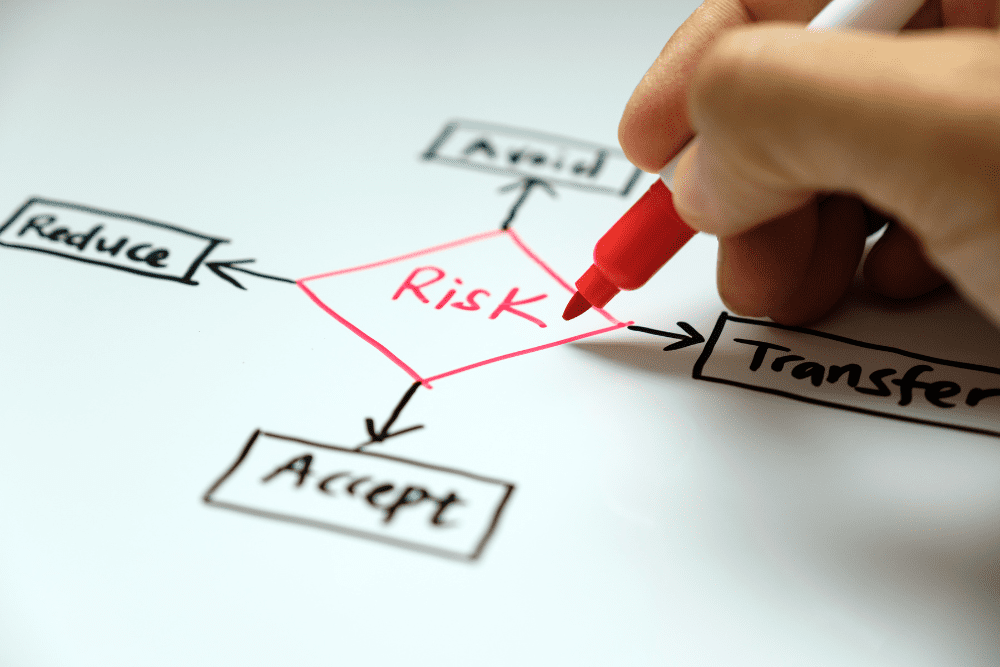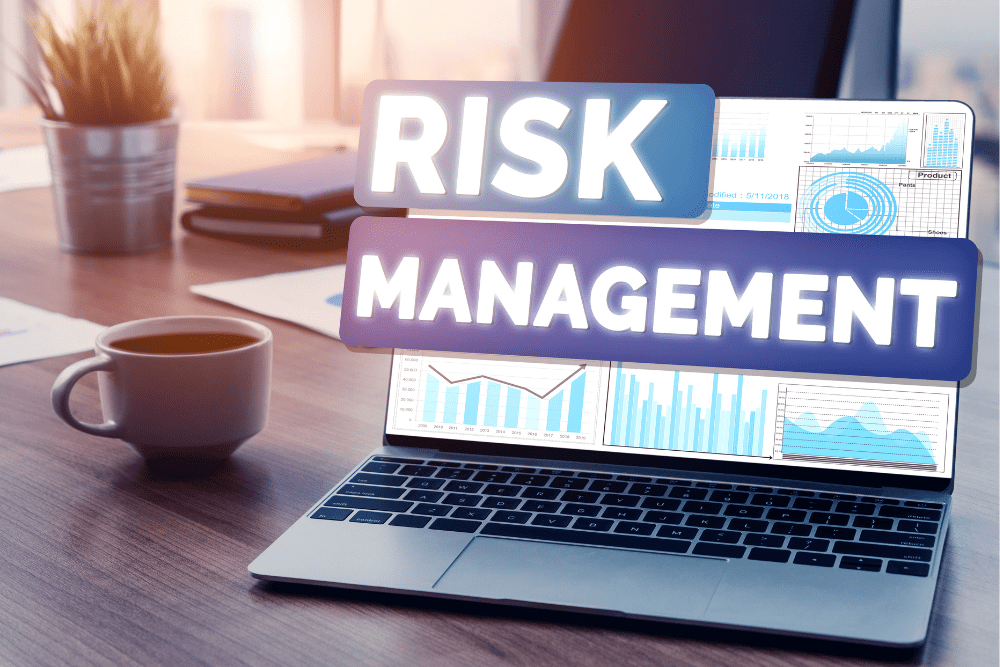Implement an enterprise risk management programme and ensure long-term success
Discover why an effective risk management plan that identifies operational, strategic, and financial risks is vital to the long-term survival and growth of any enterprise in the contemporary business environment.
Implement an enterprise risk management programme and ensure long-term success
Discover why an effective risk management plan that identifies operational, strategic, and financial risks is vital to the long-term survival and growth of any enterprise in the contemporary business environment.
-
Create a risk-aware workspace where everyone understands the likelihood and severity of risks, and how to counteract them
-
Ensure that the entire business is confident about meeting its strategic objectives
-
Ensure compliance with legal, regulatory, and reporting standards
-
Improve the efficiency and effectiveness of business operations
With its benefits made clear, let’s discover how to implement an effective risk management programme for your enterprise.
How to implement an effective enterprise risk management programme
Enterprise risk management encompasses compliance, legal, strategic, operational, security, and financial risks a business may face. This is how you can implement an effective risk management programme that can do so effectively.

Establish organisational objectives
Establishing organisation-wide goals is the first step as this allows you to take current and future business objectives into account when determining risk factors. As your business grows, the nature of the risks you face will change as well. An effective risk management plan has to address these risks as well.

Establish organisational objectives
Establishing organisation-wide goals is the first step as this allows you to take current and future business objectives into account when determining risk factors. As your business grows, the nature of the risks you face will change as well. An effective risk management plan has to address these risks as well.
Conduct a risk assessment
Based on the established objectives, the next step is to assess the risks by reviewing your business assets and analysing associated risks. This includes potential risks you may face now as well as the risks your business may face down the line on the way to achieving the organisational objectives.


Conduct a risk assessment
Based on the established objectives, the next step is to assess the risks by reviewing your business assets and analysing associated risks. This includes potential risks you may face now as well as the risks your business may face down the line on the way to achieving the organisational objectives.

Determine risk acceptance or avoidance
Once the risks have been identified, you have to decide whether the organisation will accept the risks or take steps to avoid them. If the risks associated outweigh the potential damages, you may decide to accept the risk in some cases. If not, formulating avoidance and mitigation strategies may be required.

Determine risk acceptance or avoidance
Once the risks have been identified, you have to decide whether the organisation will accept the risks or take steps to avoid them. If the risks associated outweigh the potential damages, you may decide to accept the risk in some cases. If not, formulating avoidance and mitigation strategies may be required.
Map internal and external risks
Certain internal risks may have a knock-on effect on external risks, and vice versa. Mapping your risk landscape to identify these intersections is the next step as it will allow you to understand the risk landscape much better and may prevent mitigation strategies from failing due to unforeseen circumstances.


Map internal and external risks
Certain internal risks may have a knock-on effect on external risks, and vice versa. Mapping your risk landscape to identify these intersections is the next step as it will allow you to understand the risk landscape much better and may prevent mitigation strategies from failing due to unforeseen circumstances.

Set KRIs and monitor risks
As risk management is a continuous process, consistently monitoring the risk landscape is vital to the success of an effective enterprise management programme. Setting key risk indicators helps monitoring personnel keep track of the severity of risks and take the appropriate steps to manage them effectively.

Set KRIs and monitor risks
As risk management is a continuous process, consistently monitoring the risk landscape is vital to the success of an effective enterprise management programme. Setting key risk indicators helps monitoring personnel keep track of the severity of risks and take the appropriate steps to manage them effectively.
Create a robust cybersecurity strategy with SECTARA
Implementing an effective cyber risk management plan may seem daunting with the sheer extent of information present online. But, SECTARA aims to simplify the process of implementing cybersecurity in your organisation with our risk management software, tailor-made to protect your business infrastructure.
Invest in a risk-free future with SECTARA.
Some of the industries we serve
Government
Identify, monitor, and manage systemic risks associated with policy implementation, public safety, and national security with a scalable and configurable risk assessment solution.
Critical infrastructure
Obtain insights to identify and mitigate potential threats to critical infrastructure like energy, transportation, and communication systems through professional risk assessments.
Mining
Ensure safe, secure, and efficient operations and overcome common mining challenges like equipment failure and environmental hazards via a professional risk assessment solution.
Defence
Obtain a comprehensive view of potential threats to national and regional security and implement effective risk management strategies with military-grade risk assessment solutions.
Healthcare
Ensuring the safety of patients, staff, and other stakeholders while managing risks associated with medical procedures and data privacy through a configurable risk assessment solution.
Finance
Identify, monitor, and manage critical risks like market volatility and data breaches with a risk assessment solution to protect stakeholder assets and ensure regulatory compliance.
Consultancy
Help your clients make informed decisions about risk management by leveraging insights from a professional risk assessment solution that helps identify, address, and monitor risks.
Cybersecurity
Protect your digital assets with our advanced cybersecurity risk assessment solutions. Stay ahead of evolving threats and fortify your defences with comprehensive risk assessments.
Education
Identify and mitigate compliance, finance, operational, and reputational risks in processes such as student selection and regulatory adherence with professional risk assessments.
Want to experience how SECTARATM works first-hand? Sign up for our 14-day free trial today.
Start your 14-day free trial
What you get with our free trial
2 users (Account Admin, Org & BU Admin, Assessor, Viewer)
2 concurrent assessments
2 organisations & business units
In product training
The ability to export assessments to MS Word
MS Excel treatment plans
White label SECTARATM platform
White-label exported documents
Audit records
Want to experience how SECTARATM works first-hand? Sign up for our 14-day free trial today.
What you get with our free trial
2 users (Account Admin, Org & BU Admin, Assessor, Viewer)
2 concurrent assessments
2 organisations & business units
In product training
The ability to export assessments to MS Word
MS Excel treatment plans
White label SECTARATM platform
White-label exported documents
Audit records
Start your 14-day free trial



